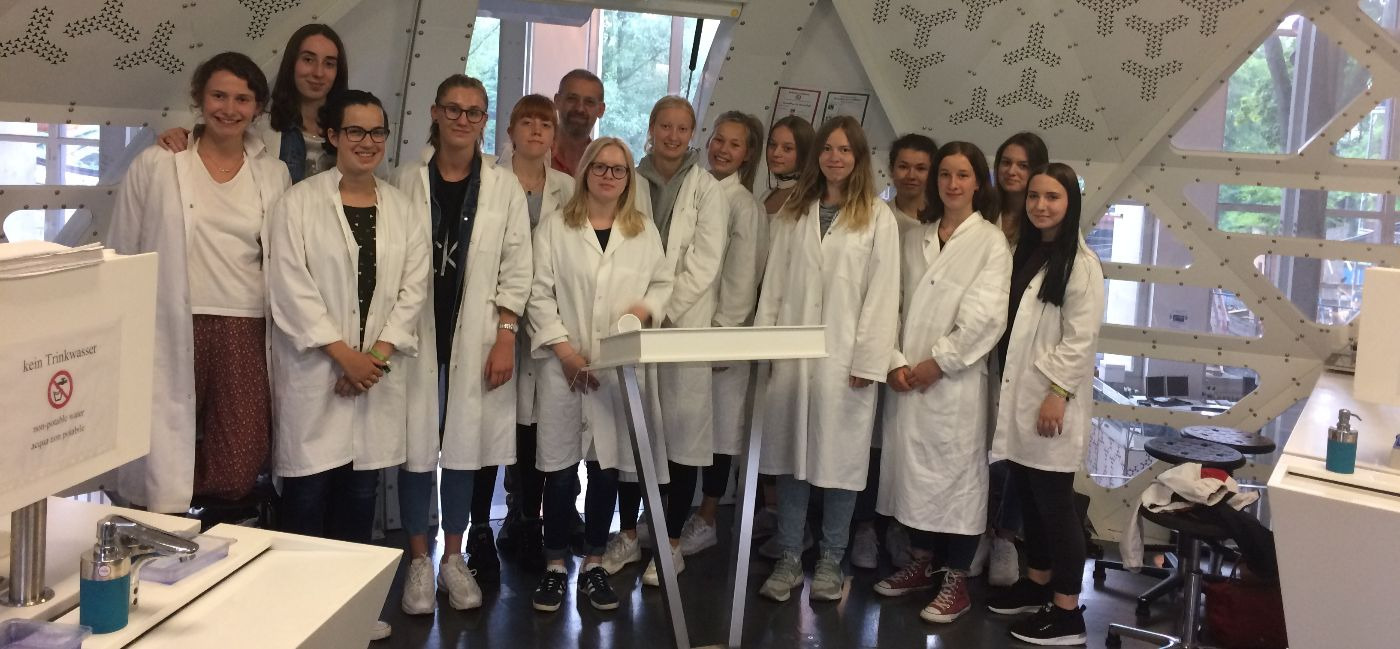Genetic Engineering Lab Course
STEM funding

Genetic Engineering Lab Course
STEM funding

Genetic engineering – a controversial topic among the general public! But what is genetic engineering anyway? What do genetic engineers do in their modern laboratories? Is genetic engineering really that dangerous?
These are several of the questions that the 11th-grade students of the biology course at a girls’ high school in Kaufbeuren (Marien-Gymnasium Kaufbeuren) are dealing with. To bring some clarity into the matter, the students were given the opportunity to explore genetic engineering working methods themselves during a practical lab course. For this purpose, different sets of students from the biology course each went to the DNA laboratory of the Deutsches Museum in Munich on July 8, 9 and 12, 2019.
What happens in a genetic engineering lab course? First, a brief introductory theoretical part dealt with plasmids, which can be obtained from the genetic material of bacteria. Plasmids are ring-shaped DNA molecules that carry special genetic information, for instance about the resistance to antibiotics. This genetic material is cut with restriction enzymes (“genetic scissors”), so that the DNA ring is open. A foreign piece of DNA is then inserted into this opened ring with the help of ligase, another special enzyme. This new piece of genetic information often contains the instructions for producing a protein. So how can we tell if the insertion of the new gene has been successful? To find this out, “gel electrophoresis” is carried out. This is a technique used to separate and visualize DNA. To do this, the sample with the modified (recombinant) plasmid must be placed in the prepared gel pockets with other comparison samples. This step requires a lot of patience and skill. If the incorporation of the foreign DNA fragment is successful, a new band will appear in the gel after staining.